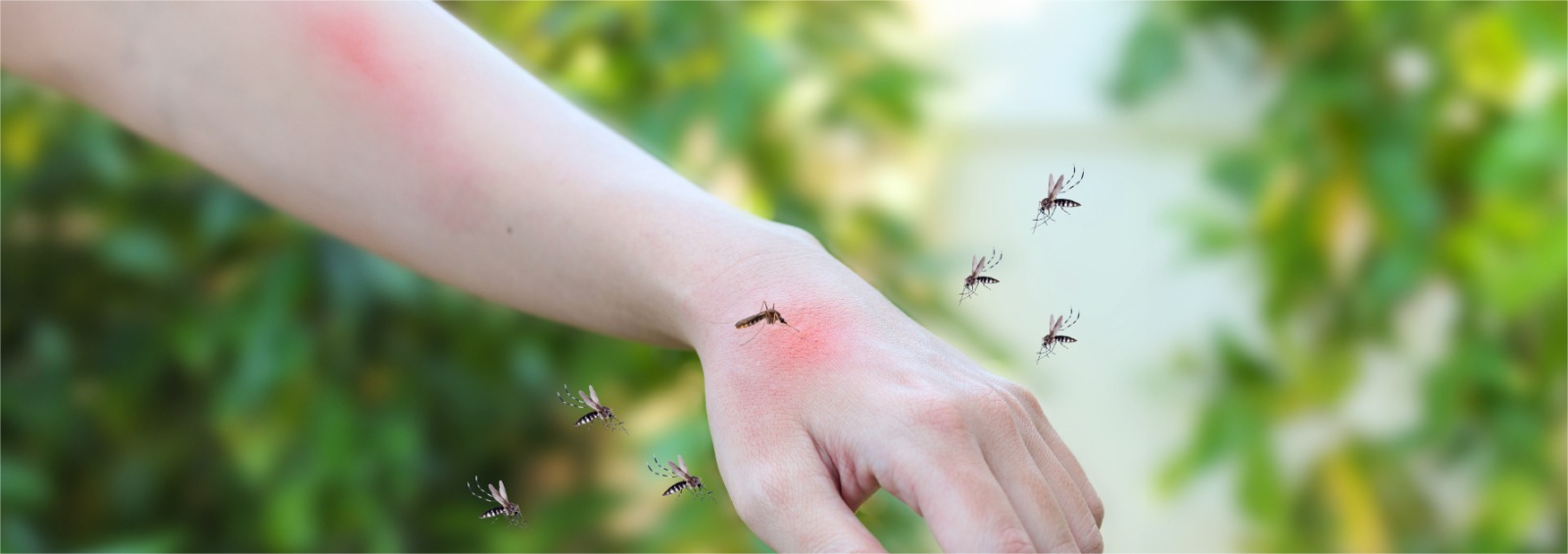Tropical Malaria: Early Signs & Effective Treatments

Overview
Malaria is an infectious disease caused by a parasitic infection that is spread to humans through the bite of infected mosquitos. It is manifested by fever along with chills & rigours. Malaria can be prevented by taking a malaria vaccine and proper precautions to avoid getting bit by a mosquito. Timely malaria tropical disease treatment with specific medications can help cure it effectively.
What is Malaria?
It is a serious, potentially life-threatening disease that causes infection by tiny parasites. The parasites are spread to us when we are bitten by mosquitoes. The bite of a single mosquito is enough to spread the parasite. If left untreated, it can cause serious complications and health problems, like seizures, brain damage, breathing difficulties, organ failure, and even death.
Types of Malaria
Infection is spread by parasites of the genus Plasmodium. There are five species of this parasite that can spread infection; these include:
- Plasmodium falciparum (or P. falciparum)
- Plasmodium malaria (or P. malaria)
- Plasmodium vivax (or P. vivax)
- Plasmodium ovale (or P. ovale)
- Plasmodium knowlesi (or P. knowlesi)
Patients with falciparum malaria can develop severe kidney complications, convulsions, and coma. P. vivax and P. ovale species of infection cause less severe illnesses but can remain dormant in the liver for many months before reappearing and causing symptoms months or years later.
Malaria Symptoms
Symptoms of infection develop within seven days of getting bitten by a mosquito. But it may take over 10 to 15 days to appear. These symptoms may be similar to the flu. These may include:
- Fever and sweating
- Chills that shake your whole body
- Headache and muscle aches
- Fatigue
- Chest pain, breathing problems and cough
- Diarrhea, nausea and vomiting
As malaria worsens, it may even cause anaemia and jaundice.
If the disease becomes severe, it may progress to put the affected person in a coma. Depending on the type of infection, the symptoms may be mild. In some cases, patients may not feel sick for as long as one year after getting bitten by a mosquito. The parasites may even live in the body of the infected person for several years without causing symptoms. Some types of the disease may trigger symptoms after a few years, causing the illness to occur again. These parasites may stay inactive in the liver and get released into the bloodstream after several years, leading to a recurrence.
Malaria Causes
Malaria is mainly caused by a single-celled parasite of the genus Plasmodium which is transmitted to humans via mosquitoes. The parasite is spread through female Anopheles mosquitoes, which are night-biting mosquitoes.
When an infected female Anopheles ( mosquito) bites a human, the parasites are transferred to the bloodstream of the person. There, the parasites can breed and multiply. The symptoms develop after a week or two of parasite transmission.
In rare cases, infection may also be transferred from a pregnant infected mother to her child while still in the womb. It is also possible that infection is spread through blood donation, transfusion, and organ donation.
Diagnosis & Treatment of Malaria
To diagnose malaria, a doctor is likely to seek a review of the patient’s symptoms and conduct a physical examination of the patient. They may also recommend blood tests that may indicate:
- The presence of malaria parasites in the blood
- Which type of parasite is causing the symptoms
- If the infection is caused by parasite resistant to certain drugs
- Whether there are any serious complications of the disease
Treatment involves using specific drugs to eliminate the parasites. The choice of drugs and the duration of the treatment depend on several factors, such as the patient’s age, the type and severity of the infection, and whether the patient is pregnant.
Preventing Malaria
It can be prevented simply by avoiding getting bitten by an infected mosquito and by vaccinating against the disease properly. Mosquitoes are most active at dusk and dawn. To protect against mosquito bites, you should:
- Wear full-sleeve clothes and full pants
- Apply mosquito-repellent creams on any exposed skin
- Apply the mosquito repellent cream even on clothes
- Use mosquito nets in bed during the night
Complications
Malaria can become complicated and may cause problems like:
- Severe anaemia
- Cerebral malaria
- Malaria during pregnancy
- Spleen rupture
- Acidosis
- Kidney damage
- Multi-organ failure, etc.
Immediate diagnosis and treatment based on the symptoms that appear can help prevent complications and death
Conclusion
Malaria is a serious disease, but it can be prevented by taking proper precautions and getting vaccinated against it on time. Patients suffering from disease should not delay diagnosis and treatment once their symptoms start to appear. Pregnant women should especially be careful of the symptoms as they are susceptible to passing it to their offspring. It is recommended that you consult experienced doctors at Omni Hospitals for the best medical advice.
This article has been medically reviewed by Dr Nagavender Rao M , General Physician.
